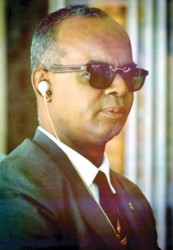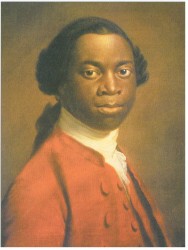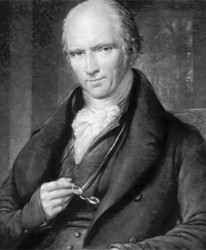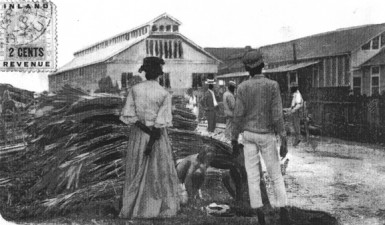This is an edited version of a column by A J McR Cameron which first appeared in Stabroek News on July 23 1988.
Eric Williams
Despite the various risings by the enslaved on the plantations of the region throughout the two hundred odd years of slavery, only one was completely successful in throwing off the planters’ yoke, namely that in St Domingue – nowadays, Haiti. Abolition when it came to the anglophone territories came from the metropolis.

Earlier last century the story of Abolition and Emancipation presented historians in Britain with few problems. It was considered to have been brought about by the actions of a group of humanitarians in Britain led by William Wilberforce.
Then came Eric Williams.
In 1944 he published what is still perhaps the most famous work in the historiography of slavery, entitled Capitalism and Slavery. Parts of his thesis were not really original, but that hardly mattered, for it was this book which revolutionized for all time the way in which scholars viewed Abolition. There are probably relatively few historians in the world today who would accept all of Williams’s propositions uncritically, but there is none who can afford to ignore him. If nothing else he set the framework of the debate.
Reduced to its barest elements, the Williams thesis maintained that firstly, the British slave system began to go into decline from the 1770s onwards. Secondly, although ironically the Slave Trade had provided the capital for Britain’s Industrial Revolution, it was nevertheless “mature industrial capitalism” which eventually destroyed the slave system. He perceived slavery as being rooted in an era of mercantilism (ie, economic protectionism) and when Adam Smith trumpeted the cause of Free Trade in 1776, he was also sounding the death knell of slavery.
In Williams’s view, the attack against slavery was led by the emerging industrial bourgeoisie (particularly in the cotton industry) which had been created by the Industrial Revolution. It was this group, he maintained, which constituted the greatest proponents of Free Trade. He argued that not only did the British nation come to adopt these Free Trade views – which facilitated the move to Abolition – but the crisis in British slavery became more acute with the breakaway of the American colonies.
Hypocrites?
Williams’s work contained a possible inconsistency in relation to the abolitionists themselves. If purely economic causes were the determining factors of abolition, and the campaign was inaugurated and sustained by those with particular vested interests, then were not the abolitionists hypocrites, since their apparent moral concern obscured a covert economic motive?
In fact, Williams does not draw this conclusion. Somewhat confusingly, perhaps, he states at one point that he had intentionally played down the role of humanitarianism, although he could not bypass it altogether for that would be “to commit a grave historical error, and to ignore one of the greatest propaganda movements of all time.”
Although he does not have too many good words to say for Wilberforce, he is generous in his praise for men like Thomas Clarkson and James Stephen, the elder and the younger, and at no point does he impugn their motives.
How the economic view is reconciled with the activities of the humanitarians is not made clear. Subsequently in his later work, he was to resolve the problem by omitting the abolitionists altogether, instead propounding his economic thesis alone.
Detractors

Some historians have held the view that Eric Williams’s thesis only became objectionable in its later, more simplistic form. In any event, no one has produced evidence linking the propagandists of the Abolition movement with any economic interest group. Similarly, no one has yet supplied evidence to indicate a connection between the Abolitionist bloc in the British Parliament and industrial economic interests outside it.
From the 1780s through the 1830s (despite the parliamentary reform of 1832) the British legislature remained what it always had been – a convocation of primarily landed interests, not industrial ones.
At a different level it should perhaps be stated that to cast doubt on the sincerity of an entire movement which included religious groups like the Quakers, British Blacks and political radicals seems at the very least to display an extraordinarily cynical view of the world. The conclusion in such circumstances would have to be that genuine moral concern does not exist.
If the motives of a section of the Abolition movement, including Wilberforce, are open to question, these relate to religious matters rather than to economic ones (see page 13B). Wilberforce, for example, was more concerned with saving the sinful soul of the slave trader than with ending the suffering of those he sinned against.
Critics
There have been critics in the past of the Williams’ economic thesis, in particular Seymour Drescher, who among other things pointed out that between 1786-90 (coinciding with the first Abolition campaign) seven-tenths of British cotton was slave-grown from the West Indies. Unlike sugar it operated in a free market situation, since it was not protected by preferential duties, but this notwithstanding there were sectors of the cotton interest who were very vociferous in their support of the sugar planters. Williams had associated the rising industrial bourgeoisie with the cotton industry in particular, and it was this class especially he had argued which had opposed slavery.
As inevitably happens in these debates, Drescher too has his critics, and just as he questioned Williams’s statistics, so too there have been historians who have raised questions about his figures.
Perhaps what can be said about the economic case is that it is not so much that a particular class or interest group was associated with Abolition – as will be seen below it really was the first mass movement of modern times – it is more that in the economic climate of the times the British economy was no longer seen as dependent on sugar by large sectors of the population, and the West Indian planter no longer the figure of importance he once had been, when he littered the English countryside with a string of grand houses built from the profits of inhumanity.
Bribery

If economic aspects have dominated the debate in the more recent past, it does not mean that over the years other causal factors have not come up for discussion, most of which will not be elaborated on here. It has to be asked, however, why in the end the slaveholders caved in and agreed to Abolition. The answer is probably rather simple; apart from the pressure they were under from the mass campaign, they were in the end bribed by the British government to agree. They were paid the enormous sum of £20M, representing 40% of the treasury’s budget, the equivalent of something like £16.5B in today’s money. Those who were in financial difficulties suddenly found themselves solvent again, while every slave-holder involved made an enormous profit.
According to an article in the Independent earlier this year, the largest single payout went to James Blair, who had a plantation in British Guiana and who was given £83,530 – or £65M in modern terms. The Gladstone family, also plantation owners in this country, were given £106, 769, or £83M in current money.
The scandalous nature of these payouts was not lost on the radical wing of the Abolitionist movement, which bitterly opposed them, but the British government remained unmoved by arguments about paying the oppressors and not the oppressed. It is reasonable to suppose that it would have taken longer to achieve Abolition if the slave-holders had not been paid; and they would certainly have held out for as long as possible once the issue of ‘compensation’ had been raised. However, for a variety of reasons, it is likely that they would have conceded eventually, no matter what they wanted; the tide was simply against them.
Intellectual background
Even the earlier historians recognized the changed climate of intellectual opinion, at least, that the Enlightenment had created, which had its spin-off effects also in the field of political theory. In the context of discussions concerning the ‘rights of man,’ among other things, some European intellectuals questioned the moral foundations of slavery. This tradition was inherited by the radicals of the 19th century.
In addition, the history of the Abolition movement is closely linked to the rise of the Protestant dissenting groups like the Quakers, and to evangelicalism. Their concerns encompassed not only slavery, but things like drinking, penal reform, gambling, prostitution and village schools.
Pressure group

The abolitionists constitute the first mass pressure-group of modem times and their influence was recognized even by Eric Williams. The industrial era provided them not only with large centres of population which could be easily mobilized, but with relatively fast and efficient communication systems, and the means for mass-producing and disseminating propaganda.
They turned out endless numbers of sheets, tracts, reports and speeches. They produced one of the most famous logos in history which for a brief period enjoyed a reputation as high fashion, being sported on hairpins, earrings, bracelets and snuff-boxes.
Their speakers travelled up and down the country and they reproduced a visual aid which is familiar even to modem school children — the drawing of the slave-ship Brookes. Poems were written and ballads composed, some of which achieved national popularity.
Finally they organized a boycott on the eating of West Indian sugar, and arranged mass signature campaigns. For the first time the Abolitionists gave a voice to sectors of the community not normally heard. An unprecedented mass movement on this scale could hardly have failed to influence Parliament.
Reform
It should be borne in mind that the Abolition Act of 1833, at least, was one of a whole series of reforms, whereby an outmoded system attempted to come to terms with a new reality. It came at a point and within a context where the first hesitant efforts were being made by any government to control the exploitation of the industrial system.
The enslaved
So where does this leave the enslaved? Did they have no contribution to make to the story? Far from it. While as said at the beginning there is no colony-wide rising (Haiti excepted) which secured freedom in a direct sense, such revolts were the sine qua non of any abolition movement in the metropolis. They were as clear a declaration as anyone could wish that those in bondage sought their freedom. Had this declaration not been so definitively made, there may well have been no Abolition movement at all.
In addition to this, there were two revolts which actually did have a direct and very important input into the Abolition process in Britain itself. These were the Demerara Uprising of 1823 and the 1831 Christmas Revolt in Jamaica. The 1823 Demerara Rising revived the movement in the UK (see page 3B) and the 1831 Rebellion also played a critical role in the evolution of events in the metropolis.





